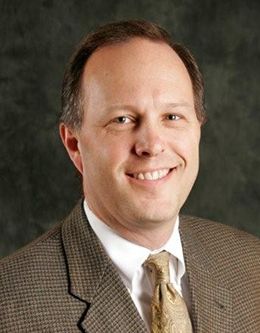I pray that you will exemplify BYU’s influence in your lives by joining me in serving this great university and the students it produces.
I appreciate the opportunity of being here today. Many of the defining experiences of my life were obtained here at BYU, on what I believe is hallowed ground.
- I solidified my testimony of the gospel of Jesus Christ.
- I confirmed my desire to fulfill a mission.
- I was introduced to my beautiful wife.
- I was educated with the basics of my occupation.
- I learned the importance of service to others.
What an honor it is to serve this university and the students it graduates.
In April I shared with the graduates an experience I had while I was a student on campus. Today I would like to share a more recent experience to emphasize how BYU continues to influence me—long after my formal education has ended.
Call it a “midlife crisis” or just searching for meaning in my career, but I was recently struggling with finding purpose in my work. As part of my normal practice I attended our monthly BYU Management Society luncheon, organized by dedicated alumni in the Seattle area.
The speaker that day, Edmond Lee, is a successful entrepreneur and the fourth of 13 children. He related the following story:
In the late 1960s Dad supported our family by working full-time at Boeing during the daytime and delivering newspapers in the early morning. He would rise at 3:45 a.m. to work the paper routes, return at 5:45, eat a quick breakfast, then drive us to early-morning seminary on his way to work. There was little time for rest. In addition to overtime work and the day-to-day demands as father of a large family, he spent two evenings per week serving as a stake missionary.
Dad’s modest income somehow met the family’s needs. However, by 1969, with three children serving full-time missions, two in college, and eight to follow, additional income was needed.
About this time there was advertised an opening for a part-time janitor position at the institute of religion building. It required evening work three nights per week. The Seattle economy was slow, so there were numerous applicants, all waiting in line for a chance at the job. Dad didn’t feel confident in his chances.
However, during his interview the institute director didn’t ask the typical questions. Instead he simply asked Dad to explain the circumstances of his life.
Upon hearing of the 13 children, the paper routes, the church service, and the added financial obligations of missions and college, to Dad’s great surprise, he was offered the job on the spot.
Additionally, the institute director made special arrangements to make the job a family affair. Instead of Dad toiling alone late in the evening, we would often work there as a family and do the job in an hour or less. Not only did it take less time, but the chance to work together served to teach us responsibility and to strengthen our family.
This institute director was none other than Elder Jeffrey R. Holland, now a current member of the Quorum of the Twelve Apostles and former president of Brigham Young University.
As I returned to my office after this Management Society luncheon, I was struck with how this BYU “classroom away from campus” had enlightened my soul. My somewhat selfish questions of what I was gaining from my profession were replaced with a newfound understanding of how to use my role to help others. Instead of only evaluating how an employee could serve my needs, I learned to be an employer who viewed every job as a valuable asset—an asset to be used in the most profitable way to bless the life of some worthy person. I learned that this was something with which the Lord had blessed me and that I could use it to build the kingdom of God.
Brigham Young University teaches more than life skills—it teaches how to live life. With the lessons we gain here, we become stewards of this knowledge, of this university’s reputation, and of its prophesied success.
Please make a commitment with me today to serve Brigham Young University and begin fulfilling your stewardship responsibilities!
- Serve BYU by mentoring those who follow you.
- Serve BYU by donating your time and financial support every year.
- Serve BYU by never doing anything that would reflect poorly on its name.
- Serve BYU by being the employee/manager/owner/citizen who acts only with the highest integrity.
- Serve BYU by growing the testimony of the gospel that was nurtured here.
- Serve BYU by sharing all you have been blessed with to help others.
I congratulate you on your accomplishments to date.
As president of your alumni association, I hereby confer on each of you lifetime membership in the Brigham Young University Alumni Association and welcome you to this honored fraternity of more than 350,000.
As Elder Holland exemplified more than 35 years ago, I invite each of you to “ask the right questions”—namely, how you can use what you have learned at BYU to serve others. I pray that you will exemplify BYU’s influence in your lives by joining me in serving this great university and the students it produces. In the name of Jesus Christ, amen.
© Brigham Young University. All rights reserved.

Carr Krueger was president of the BYU Alumni Association when this BYU commencement address was given on 12 August 2004.


